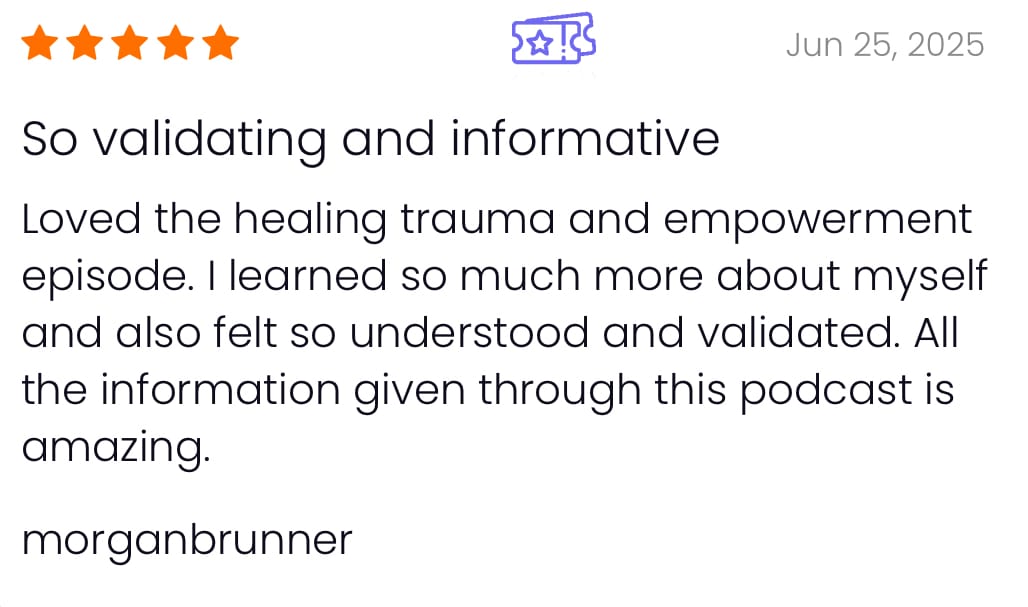Confronting Shame
Has the control of shame crippled you?
That was the exact discussion I had with Emma Lyons on last week's episode of EZ Conversations (Listen Here)
We explored the role shame plays in society and culture—and how it’s often used as a form of control.
As Emma shared, shame can be expressed overtly or covertly, often becoming a subtle form of narcissistic manipulation. Her work and the tool she’s developed focus on helping people become aware of shame—and in doing so, limiting its power over them.
Our discussion also delved into how religion, politics, and ideology can use shame to enforce conformity. When that happens, shame becomes a means of social control rather than a form of self-reflection. It silences authenticity and growth.
The Psychology of Shame
Psychologically, shame is one of the most painful self-conscious emotions because it targets the self.
Unlike guilt—“I did something bad”—shame whispers, “I am bad.” (Tangney & Dearing, 2002)
Research shows that chronic shame activates brain regions linked to both emotional and physical pain, including the anterior cingulate cortex and the insula (Eisenberger, 2012). This is why shame can literally hurt.
When shame takes hold, it triggers our threat-defence system, raising cortisol and suppressing heart-rate variability (Dickerson et al., 2004). Over time, this physiological toll can manifest as depression, anxiety, and addiction (Dearing & Tangney, 2011; Gillath et al., 2021).
Shame and Addiction
In my clinical work, shame is often the root emotion driving addictive or self-sabotaging behaviour.
People turn to substances or compulsions to numb the inner critic, and shame fuels. As Brené Brown (2006) puts it, shame is “the intensely painful feeling of believing that we are flawed and therefore unworthy of love and belonging.”
Neuroscience backs this up. When we experience shame, the default mode network (DMN)—the part of the brain involved in self-referential thought—shows hyperactivity (Rangel et al., 2022). This creates cycles of rumination and self-blame.
Healing begins when we reintegrate the self through compassion, awareness, and connection.
Breaking the Cycle
To move beyond shame, we must learn to observe it without becoming it.
Therapies like Internal Family Systems (IFS), EMDR, and Compassion-Focused Therapy (CFT) help us meet shame-based parts with understanding rather than judgment.
Self-compassion research consistently shows that cultivating kindness toward oneself reduces shame and physiological stress, fostering resilience and emotional balance (Neff & Germer, 2018).
Over time, compassion replaces self-condemnation with curiosity—and curiosity is the first step toward freedom.
Final Reflection
Shame thrives in silence. But once we name it and understand its origins, we take back our power.
As Emma and I discussed, the antidote to shame isn’t pride—it’s presence.
Healing from shame means standing in truth, even when every instinct tells us to hide.
So, ask yourself today: What part of me still hides in shame—and what would happen if I met it with compassion instead?
References: Brown, 2006; Dearing & Tangney, 2011; Dickerson et al., 2004; Eisenberger, 2012; Gillath et al., 2021; Neff & Germer, 2018; Rangel et al., 2022; Tangney & Dearing, 2002.

A snippet of the Episode
Head to YouTube for the full episode. Or Subscribe below:
What people are saying about the podcast:

Quote of the Week:
“The right to express our thoughts means something only if we are able to have thoughts of our own.”
Sponsors
Will A Book Grow Your Business?
No one buys a beach house from book sales—they buy it from what the book makes possible.
Author.Inc helps founders turn ideas into world-class books that build revenue, reputation, and reach.
Book a free 15-minute ROI call to see if your book is a go—or a smart wait.
Join over 4 million Americans who start their day with 1440 – your daily digest for unbiased, fact-centric news. From politics to sports, we cover it all by analyzing over 100 sources. Our concise, 5-minute read lands in your inbox each morning at no cost. Experience news without the noise; let 1440 help you make up your own mind. Sign up now and invite your friends and family to be part of the informed.
Strength training made for this stage of life.
Trainwell matches you with a certified trainer who understands perimenopause and creates a plan built around your energy, symptoms, and schedule.
Subscribe to the Podcast and Newsletter
Looking to build your own Newsletter?
Follow my personalized link to get 20% off all Beehiiv plans:






